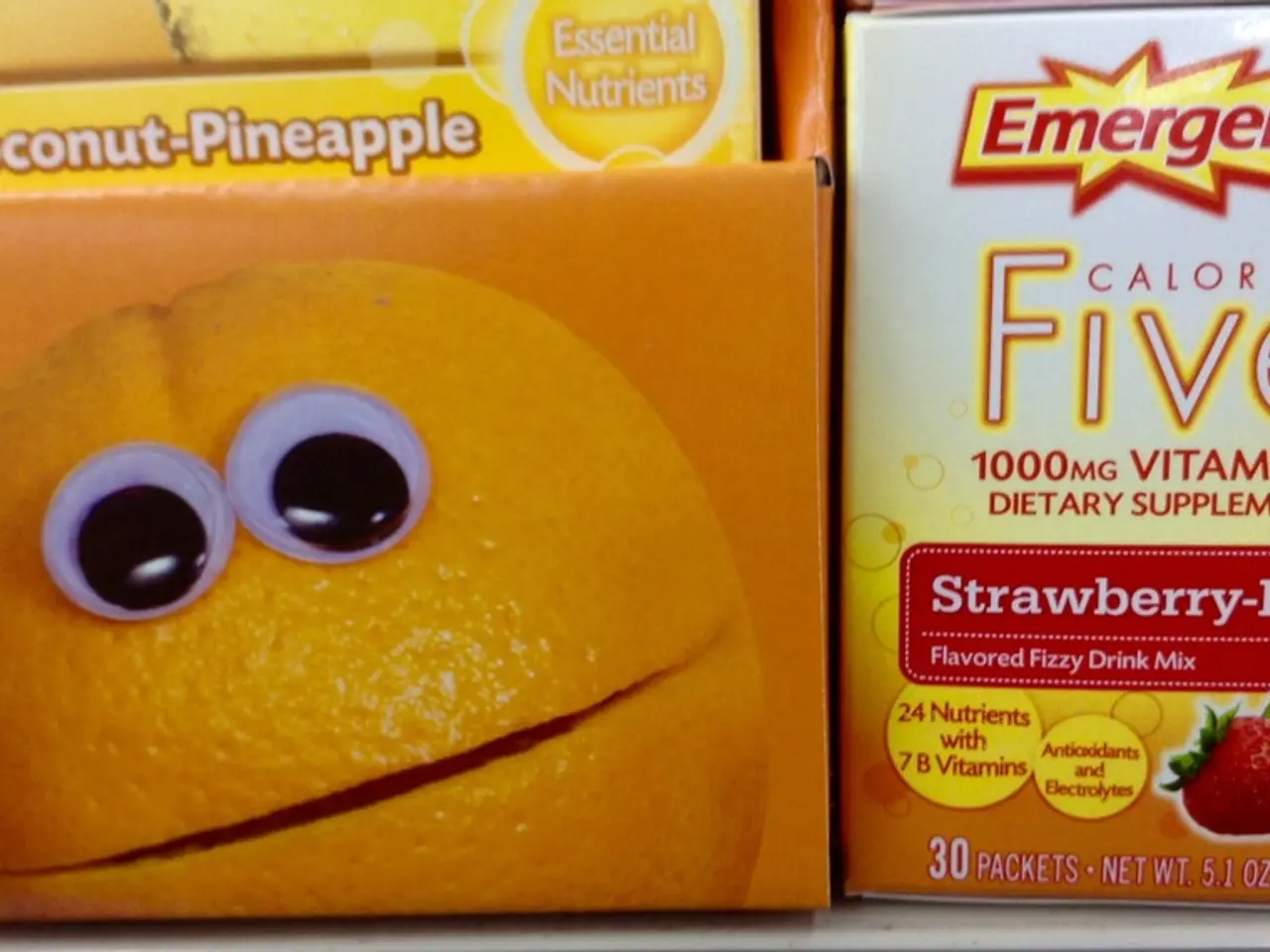Recommended beverages for alleviating a hangover's symptoms
In the aftermath of a night of drinking, many people find themselves grappling with the uncomfortable symptoms of a hangover. While there is no foolproof cure for a hangover, certain hydrating beverages can help alleviate some of the discomfort.
One such beverage is coconut water, which is naturally rich in electrolytes such as potassium and magnesium. These electrolytes help replenish what alcohol depletes from the body, while the low sugar content makes it gentle on the stomach. Coconut water also contains antioxidants that combat oxidative stress caused by alcohol, further aiding in recovery [1].
Electrolyte drinks like Liquid I.V. use an optimized ratio of electrolytes, glucose, and vitamins to improve hydration more effectively than water alone. Glucose and sodium help accelerate fluid absorption and retention, addressing dehydration—a key factor in hangover symptoms like headache and fatigue. However, these drinks mainly relieve dehydration and do not treat other hangover issues such as stomach upset or inflammation [2].
Herbal and green teas can also aid recovery by providing hydration along with other supportive effects. For example, peppermint tea relaxes digestive muscles to ease cramps and nausea, while green tea offers a gentle caffeine boost and antioxidants that help reduce oxidative stress and enhance recovery [4].
For severe hangovers, IV hydration therapies combining saline and electrolytes can quickly rebalance salts and flush toxins, helping restore hydration and electrolyte balance much faster than oral beverages [3].
These beverages help counteract alcohol-induced dehydration and electrolyte losses, which are major contributors to hangover symptoms. By restoring fluid and mineral balance, soothing the digestive system, and providing antioxidants, they support faster and more comfortable recovery after drinking.
| Beverage Type | Key Benefits | How It Helps Hangover Symptoms | |-------------------------|----------------------------------------|-----------------------------------------| | Coconut water | Electrolytes (potassium, magnesium), antioxidants, low sugar | Rehydrates, replenishes electrolytes, fights oxidative stress | | Electrolyte drinks (e.g., Liquid I.V.) | Electrolytes, glucose, vitamins | Enhances hydration and fluid retention | | Herbal teas (peppermint, green) | Soothing digestive muscles, antioxidants, mild caffeine | Reduces nausea, inflammation, improves alertness | | IV hydration (saline + electrolytes) | Fast rehydration and electrolyte replenishment | Rapid symptom relief, toxin flushing |
While these beverages can help alleviate some hangover symptoms, it's important to note that drinking water can also help prevent dehydration and may alleviate hangover symptoms. On the other hand, consuming drinks with high sugar content, such as sodas and some fruit drinks, can be dehydrating and increase the risk of kidney injuries. Eating certain foods before alcohol consumption may also help slow alcohol absorption in the body.
It's also crucial to remember that drinking on an empty stomach intensifies the effects of alcohol, and mixing alcohol and caffeine does not prevent a hangover and may have potential dangers. Furthermore, consuming alcohol, which dehydrates the body, can make hangover symptoms worse.
Lastly, research suggests that biological factors, such as dehydration, hormonal alterations, dysregulated cytokine pathways, and the toxic effects of alcohol, contribute to hangovers. Consuming alcohol, also known as the "hair of the dog," will not alleviate hangover symptoms and may lead to alcohol use disorder.
In conclusion, while there is no magic cure for a hangover, staying hydrated and maintaining sufficient electrolyte balance can help mitigate some of the discomfort associated with a hangover. By choosing the right beverages and being mindful of your consumption habits, you can help ensure a smoother recovery after a night of drinking.
[1] Coconut water's hydration potential: a review [2] Liquid I.V. Hydration Multiplier: A Review of the Science Behind Its Effectiveness [3] Intravenous rehydration for the treatment of alcohol hangover: a systematic review and meta-analysis [4] Green tea and its health benefits: a review of the recent clinical evidence
- Substituting high sugar content drinks like sodas and some fruit juices with hydrating beverages, such as coconut water or electrolyte drinks, can help avoid dehydration and kidney injuries during a hangover.
- Consuming certain foods before alcohol consumption may help slow alcohol absorption and potentially alleviate hangover symptoms.
- Drinking alcohol on an empty stomach can intensify the effects of alcohol, leading to more severe hangover symptoms.
- Mixing alcohol and caffeine, contrary to popular belief, does not prevent a hangover and may even pose potential risks.
- Severe hangovers may require IV hydration therapies, which can quickly replenish electrolytes and hydrate the body more effectively than oral beverages.
- Regular consumption of green tea, aside from its hydrating properties, also provides antioxidants that help reduce oxidative stress and enhance recovery from a hangover.
- Peppermint tea can relax digestive muscles, reducing cramps, nausea, and other uncomfortable hangover symptoms. Choosing the right beverages and practices can contribute to a healthier lifestyle, including better hydration, nutrition, fitness-and-exercise, and food-and-drink choices in the health-and-wellness and lifestyle arena.




